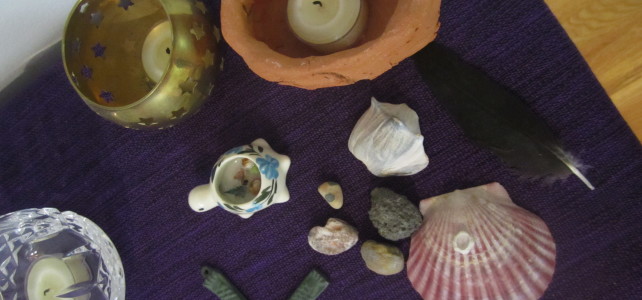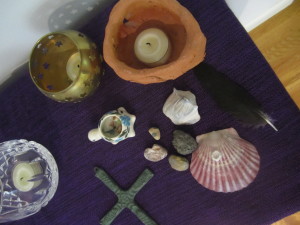
PHOTO: Mary van Balen
While reading some reflections by Richard Rohr on the presence of Christ in creation from the beginning, I was struck by the phrase “Christ-soaked world.” It brought to mind two Scripture readings from Paul used for the beginning of Lent: one from 2Corinthians and the other from Romans. In both, he draws from Hebrew Scriptures, and in both, reminds us of the immediacy of God’s presence.
“In an acceptable time I heard you / and on the day of salvation I helped you…” (Isaiah 49) “Now is an acceptable time,” Paul writes is 2Corinthians. “Now is the day of salvation.” Not yesterday. Not tomorrow. Now. This moment. Every moment. Because God has always “heard” and has always “helped.” From before time. That is who God is. Presence. Love. Always given. We didn’t miss it. We don’t have to wait for it. It is always poured out in and through us and creation.
In Romans Paul reminds us: “What does Scripture say? /The word is near you, / in your mouth and in your heart.” (Deuteronomy 30) God assures those listening that what is commanded is not a mystery or far away. “It is not in up in the sky, that you should say, ‘Who will go up in the sky to get it for us and tell us of it, that we may carry it out?’” It isn’t across the sea either. “No, it is something very near to you already in your mouths and in your hearts. You have only to carry it out.”
We may forget this. The Pharisees did. They didn’t recognize God in Jesus let alone the tax collectors and “riffraff” he hung out with. They expected to find God in “holier” places. The temple. The people who kept all the laws. People like themselves. Jesus confounded them with his insistence of spending time with the poor and marginalized, with his talk of God’s care for sparrows and stories of rejoicing over finding a lost coin or wandering sheep. Surely the Holy One was more discriminating than that!
No, not really. God is constantly giving Godself away because that’s what Love does. The incarnation in Jesus didn’t happen because people had made such a mess of things that only the sacrifice of his life could appease an angry God. No. As the thirteenth century Franciscan theologian, John Duns Scotus taught, Christ was always the plan.
Jesus showed us to what lengths Love would go, not to atone for sins or to be a scapegoat, but to be Love’s heart and human face on this planet. “See, this is how much I love you,” he said with arms outstretched on the cross.
These readings, reminders that God lives not far away but in the depths of our hearts at this very moment, set the tone for the Lenten journey. It’s not necessarily about giving up favorite foods or candy (though I wouldn’t mind losing a few pounds) or reading more Scripture, though it could be.
Lenten practice, whatever we choose, is about helping us grow in our trust that divine Love truly does live within us—not somewhere in the sky or across the sea. Lent is a time to listen. To discover what helps us deepen our relationship with God and to do it.
The focus is not personal salvation. It never was. It’s about becoming an uncluttered conduit of love and care for others and all creation. Jesus shows us that we are part of Christ and the work of “soaking the earth” with Love and Presence. As Isaiah tells us, the fast God wants is freeing the oppressed and unjustly bound, sharing our bread with the hungry, sheltering the oppressed and homeless, taking care of the other. (Isaiah 58)
This is the work Lent prepares us to do by reminding us to deepen our relationship with the Holy One who dwells within. Trusting it. Drawing our strength and hope from Love so we can be faithful to our part of Love’s transforming the earth.
This season invites us to take a breath, to nurture our spirits, mind, and body for this work. Now is the acceptable time.
Jesus’ life and eventual death attest to the struggle and danger of being radical love in a world that isn’t ready for it. But, as part of the Christ, that is our call.
© 2019 Mary van Balen


